Traffic noise reduces the stress-relieving benefits of listening to nature, study finds
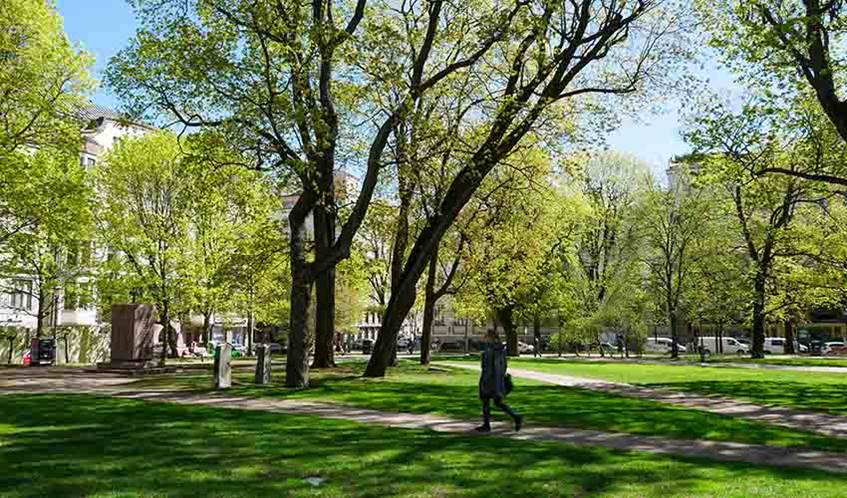
Road traffic noise reduces the wellbeing benefits associated with spending time listening to nature, researchers have discovered.
A study conducted by UWE Bristol found that manmade sounds such as those emitted from vehicle traffic can mask the positive impact of the sounds of nature on people’s stress and anxiety.
Existing research shows that natural sounds, such as birdsong, can lower blood pressure, heart, and respiratory rates as well as self-reported stress and anxiety. Conversely, manmade sounds such as traffic or aircraft noise are thought to have negative effects on human health and wellbeing in a variety of ways.
In the new study, 68 student volunteers from UWE Bristol listened to three separate three-minute audio recordings: the sounds of nature recorded at sunrise in West Sussex, along with the same recording combined with 20 miles per hour road traffic sounds, and again combined with 40 miles per hour traffic sounds. The general mood and anxiety levels of the volunteers was assessed before and after listening to the recordings, using self-reported scales.
The study found that listening to natural sounds reduced self-reported stress and anxiety levels, and also enhanced mood recovery after a stressor. However, the benefits of improved mood associated with the natural soundscape was limited when traffic sounds were included. The natural soundscape alone was associated with the lowest levels of stress and anxiety, with the highest levels reported after listening to the recording that included 40 miles per hour traffic.
The authors of the study concluded that reducing traffic speed in urban areas might influence human health and wellbeing, through both safety impacts and the effect on natural soundscapes.
In their academic paper, published in open-access journal PLOS One, the authors said: “Our study shows that listening to natural soundscapes can reduce stress and anxiety, and that anthropogenic sounds such as traffic noise can mask potential positive impacts. Reducing traffic speeds in cities is therefore an important step towards more people experiencing the positive effects of nature on their health and wellbeing.”
Dr Paul Lintott, Senior Lecturer in Conservation Science at UWE Bristol, who led the study, said: “Our study provides valuable insights into how natural and anthropogenic soundscapes affect anxiety and stress in urban areas. It highlights a critical aspect of urban living that is often overlooked – the need for access to natural sounds amidst the constant noise of city life.
“The study demonstrates that reducing speed limits in residential areas could be a simple yet effective measure to enhance the quality of life for urban residents. Prioritising lower speed limits and enhancing green spaces within cities can improve the living environment, and reduce the stresses associated with urban noise pollution.
“We are currently researching the impact of electric vehicle noise on both wildlife and human health and wellbeing. We are excited to further explore how this emerging technology can contribute to creating healthier, quieter urban environments.”
The full academic paper can be access on the PLOS One website.
Related news

12 December 2025
UWE Bristol’s environmentally conscious and student-focused accommodation wins three awards
Purdown View, the world's largest certified Passivhaus student accommodation development, has been recognised at Property Week Student Accommodation Awards.
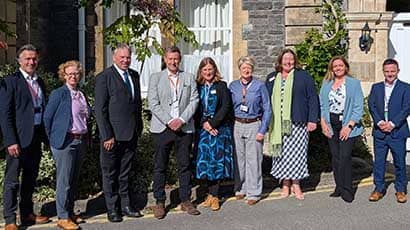
13 November 2025
Alliance Medical and UWE Bristol launch UK’s first PET-CT postgraduate certificate
In a move set to transform imaging education, Alliance Medical (AML) and UWE Bristol have joined forces to co-design and develop the UK’s first PET-CT Postgraduate Certificate (PG Cert).

10 November 2025
Lessons from Low Traffic Neighbourhoods will drive better public engagement, study finds
Lessons from Low Traffic Neighbourhoods have informed a new toolkit to improve engagement with the public on challenging local street issues.

29 September 2025
Smartphone use hitting struggling pupils hardest, major study finds
Young people struggling with their studies at school are much more likely to have negative experiences on their smartphones than their better performing peers, a major new study has found.

11 September 2025
New study to investigate augmented reality as an intervention for emotionally based school avoidance
A UWE Bristol researcher will support a new study exploring whether an augmented reality board game can help young people with emotionally based school avoidance (EBSA).

28 July 2025
Student wins bronze medal at World Aquatics Championships on her graduation day
UWE Bristol sports rehabilitation student Izzy Thorpe made waves at the World Aquatics Championships winning a bronze medal in artistic swimming on the same day she was meant to be crossing the stage at her university graduation ceremony.

28 May 2025
Leading organisations fighting to end youth violence in cities join UWE Bristol event panel
Leaders from Bristol-based Empire Fighting Chance and Canadian non-profit REACH will speak at the next Bristol Distinguished Address Series.
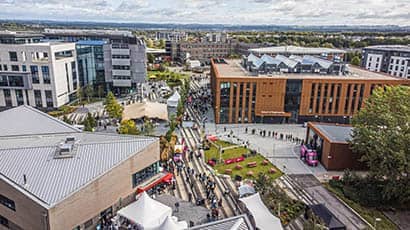
09 May 2025
UWE Bristol among first universities in UK to introduce sanitary waste bins in male toilets
UWE Bristol is among the first universities in the UK to introduce sanitary waste bins in male toilets for the disposal of incontinence products.

11 April 2025
UWE Bristol academics among emerging scientific leaders to receive share of £7.6m for health research
Two UWE Bristol researchers are among the recipients of a £7.6 million investment from the Academy of Medical Sciences aimed at tackling urgent health challenges.
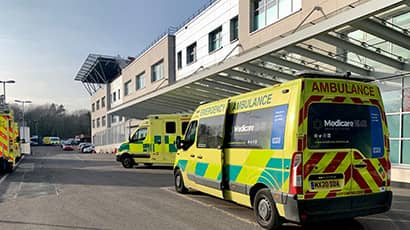
09 April 2025
New research to support a thriving health and care workforce is launched
A national research partnership will explore ways to support wellbeing and sustainability in the NHS and social care same day and urgent care workforce.

10 March 2025
UWE Bristol to explore the power of open water swimming at upcoming event with The Wave founder Nick Hounsfield
An inspiring tale of grit and resilience will be told to audiences at the first BDAS event of 2025 as UWE Bristol welcomes Nick Hounsfield, founder of The Wave.
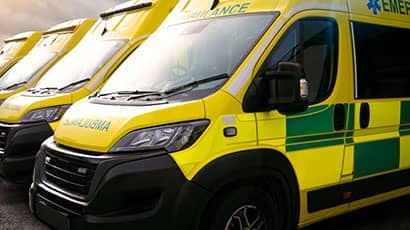
28 February 2025
Paramedics in GP surgeries may ease workload but not NHS costs, study finds
Paramedics working in GP surgeries help reduce GP workload but do not contribute to cost savings to the NHS, according to the first major study of the clinical and cost-effectiveness of paramedic compared with GP consultations.
You may also be interested in

Media enquiries
Enquiries related to news releases and press and contacts for the media team.
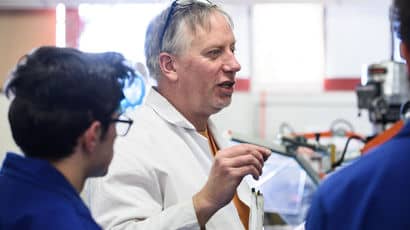
Find an expert
Media contacts are invited to check out the vast range of subjects where UWE Bristol can offer up expert commentary.
College of Health, Science and Society
The College of Health, Science and Society is a large, diverse and dynamic part of the University, bringing together experts from Health and Social Wellbeing, Applied Sciences, Education and Social Sciences






